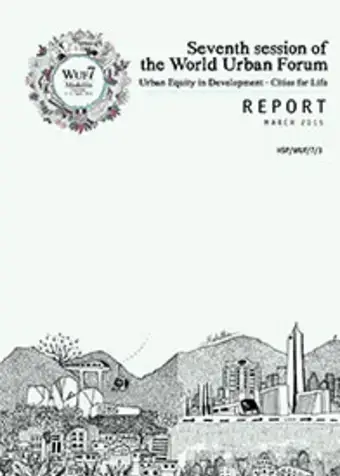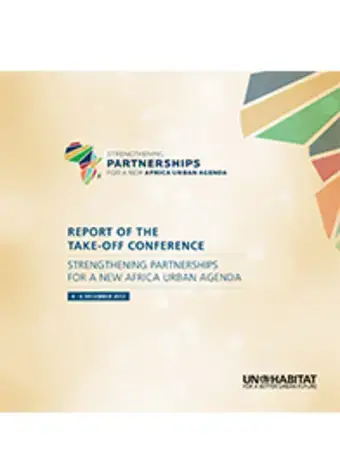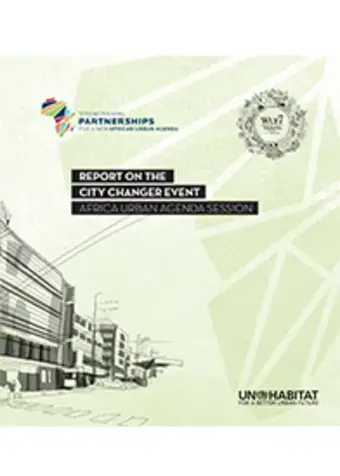 Le Forum urbain mondial (FUM) est un évènement universel auquel participent les délégués de toutes les régions du monde dont l’Afrique.
Le Forum urbain mondial (FUM) est un évènement universel auquel participent les délégués de toutes les régions du monde dont l’Afrique.
Strengthening Partnerships for a New African Urban Agenda: Conference Report (French Version)
 Pour affirmer l’engagement effectif des pays africains dans le processus de production d'un ‘Agenda urbain’ pour le 21ème siècle qui reconnaît l’évolution constante des civilisations humaines, les gouvernements du Nigeria et du Ghana se sont engagés à mobiliser, dans le cadre de la Conférence d’Habitat II, les moyens nécessaires pour lancer un processus préparatoire dynamique, fondé sur des données factuelles et hautement inclusif, et impliq
Pour affirmer l’engagement effectif des pays africains dans le processus de production d'un ‘Agenda urbain’ pour le 21ème siècle qui reconnaît l’évolution constante des civilisations humaines, les gouvernements du Nigeria et du Ghana se sont engagés à mobiliser, dans le cadre de la Conférence d’Habitat II, les moyens nécessaires pour lancer un processus préparatoire dynamique, fondé sur des données factuelles et hautement inclusif, et impliq


